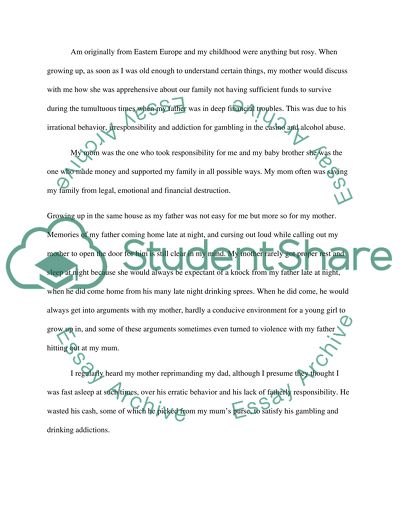Cite this document
(“Struggle to a Dream: Lessons from the Past Essay”, n.d.)
Retrieved from https://studentshare.org/english/1450331-personal-essay
Retrieved from https://studentshare.org/english/1450331-personal-essay
(Struggle to a Dream: Lessons from the Past Essay)
https://studentshare.org/english/1450331-personal-essay.
https://studentshare.org/english/1450331-personal-essay.
“Struggle to a Dream: Lessons from the Past Essay”, n.d. https://studentshare.org/english/1450331-personal-essay.


